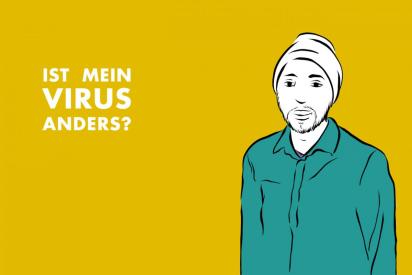Ammar

When I arrived in Germany, I immediately started learning German. I can't imagine living in a city long-term without speaking the local language so that my everyday life can run smoothly.
I was then told to go to the doctor so that I could start my therapy. I never expected to encounter communication and language barriers in a doctor's surgery, partly because I speak English well.
At the HIV practice, I was told that we were in Germany and that I had to speak German
At the HIV practice, I was told that we are in Germany and that I have to speak German. I tried to explain that I had already started going to language school, but that it wasn't enough to communicate yet. The receptionist told me that I should learn faster. I couldn't respond to that. What does she know about my life, the situation I find myself in as a refugee, the difficulties I face? At the very least, it is impolite to be addressed in this way.
The situation was not much different when the blood was taken. The nurse tried to talk to me as she took my blood. First she asked where I was from. Just before she stuck the needle in my arm, she asked if I was a refugee. I didn't know how to answer that. I wanted to tell her that it was none of her business, that it was a personal matter. But I didn't want to upset her because the needle was already in me.
I was also very disappointed with the doctor. He also tried to talk to me in German, even though I had never been to therapy before and he can speak good English. I wanted to ask a lot of questions about taking the medication and the side effects. I also wanted to show him that I was a good patient.
